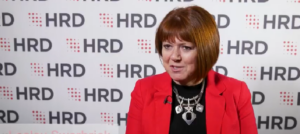HR’s ever-evolving contribution to organisational success
- 6 Min Read
HR luminary Dave Ulrich traces how the HR function has evolved over time
- Author: Dave Ulrich
- Date published: Apr 1, 2021
- Categories

The last twelve months will go down in history as a period of unprecedented shock, change, and volatility. A year ago, business and HR leaders were encouraged to adapt to the ‘future of work,’ where they had to respond to rapid technological change. Now HR is centre stage, needing to reinvent today’s and tomorrow’s work, and adapt to unparalleled conditions: a pandemic, social tensions (racial strife, refugee challenges, and political dissent), economic adversity, and personal emotional malaise, because these threats have such a profound impact on people and organisations. To turn these reinvention challenges into opportunities, HR professionals should creatively answer this question: what are HR’s unique contributions to organisational success?
HR value creation, delivery, and capture
HR value creation has evolved. HR professionals no longer merely try to ‘get to the table’ but deliver value when there. HR delivers value through four waves, that show a maturation of HR work (see figure one). HR practices are no longer just about efficiency (wave one); isolated functional excellence in areas such as staffing, training, reward, digital, analytics, and so forth (wave two); or even integrated HR solutions to deliver business strategy (wave 3). In addition to these waves, HR is now about delivering value to customers, investors, and communities outside the organisation (wave four).
The outside-in wave moves from value creation to value delivery when HR ‘customers’ are not just employees, leaders, or business strategies inside the organisation, but also stakeholders such as customers, investors (debt or equity), and communities outside the company. HR value delivery is captured when HR analytics are not about activities with scorecards, dashboards, and insights, but about the impact of HR activities on key stakeholders, accomplished through an organisation guidance system.
Figure one: waves of HR evolution

HR’s unique contributions to organisational success
HR professionals get invited to business dialogues because they understand value creation, delivery, and capture from the outside-in (wave four). Once invited to business conversations, HR participates by offering unique contributions in the areas of talent, organisation, and leadership. These three areas of contribution are not new, but they are even more critical in responding to current challenges and discovering future opportunities.
Talent
Traditionally, HR offered unique insights around individual competence (called workforce, skills, talent, or people). HR’s legacy has been to fight the war for talent and focus on ensuring that employees have the competencies (right job, right place, right time), high commitment (employee value proposition), and contribution (a positive employee experience).
Each of these talent-related efforts can evolve to be viewed outside-in to respond to changing times by ensuring that the right competencies are those that deliver customer and investor value, and by linking employee experience to customer experience.
Many suggest that “people are our most important asset,” but today, that should be modified to “our people are our customers’ most important asset.” HR initiatives that foster the right talent for customers will have much more lasting impact in a perilous world. As customers experience dramatic pandemic change; talent has to adapt as quickly (e.g., using digital information to access product and to manage people virtually).
Building employee experience is not enough—HR must link employee experience to customer experience and investor confidence. Customers and investors can participate in talent-improvement initiatives to make sure that the talent adapts to customer requirements (e.g., invite customers or investors into hiring, training, compensation, and communication practices).
Organisation
HR also offers unique insights about organisation capabilities (called workplace, culture, or process). Wars are fought with people, but victory comes from how well the organisation turns individual ingredients into organizational identities. Just like individual personalities (e.g., the big five) are more important predictors of personal wellbeing than traits (eye or hair colour, height, weight), organisation capabilities matter more than organisational demographics (number of levels, span of control).
Our research (The RBL Group and University of Michigan) found that the capabilities of an organisation have four times the impact on business results than the competence of individuals. For example, teams with individuals who work well together as a team will outperform a team of individual all-stars that don’t work well together.
HR professionals engage leadership teams in defining and embedding the right organisation capabilities such as agility, external sensing, innovation, collaboration, or efficiency. These organisation capabilities are “right” when they are chosen with an outside-in perspective that is dramatically changing in today’s world and capture value for customers, investors, and communities.
For example, just describing a culture (values, behaviours, or roots of a tree) is no longer enough; identifying and ensuring the “right” culture (the fruits and leaves of the tree) that creates, delivers, and captures value for customers and investors is incumbent. The “right” culture can be defined as the identity of the firm in the mind of its best customers that then shapes employee behaviours and HR practices. In this volatile year, the right culture focuses on customer identity to help an organisations stay connected to customer changes rather being focused on internal values.
Leadership
Talent and organisation are shaped and driven by leaders. Employees (individual competencies) often mimic what their leaders do, and organisation capabilities often reflect leaders’ personalities. More importantly, leadership at all levels of the organisation signals thoughts and actions that get attention. Again, defining effective leadership may be done with customers in mind (leadership brand work) and with investor impact (leadership capital index work). In today’s uncertain world, it is more important than ever to ensure that the right leadership exists to create value for customers and investors.
Why HR’s ever-evolving contribution matters
HR professionals get invited to business discussions in today’s changing world because they add value, not only inside but outside the organisation (four waves). HR professionals more fully contribute to business impact because they create, deliver, and capture valuable insights on talent, organisation, and leadership.
The last twelve months will likely be long remembered for the crises our world has faced. I hope that the last twelve months will also be remembered as a time when HR insights on talent, leadership, and organisation enabled employees to find well-being, organisations to deliver digital and other strategies, customers to continue receiving products and services, investors to keep confidence, and communities to thrive through increased social citizenship despite all the crises. We hope those interested in this agenda will access the Organisation Guidance System (OGS) at www.rbl.ai to perform a free assessment and receive a free report on how to make these contributions happen.









